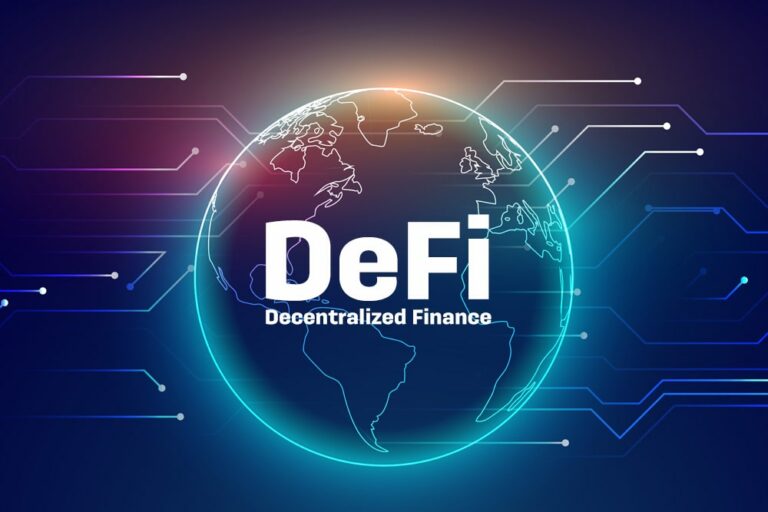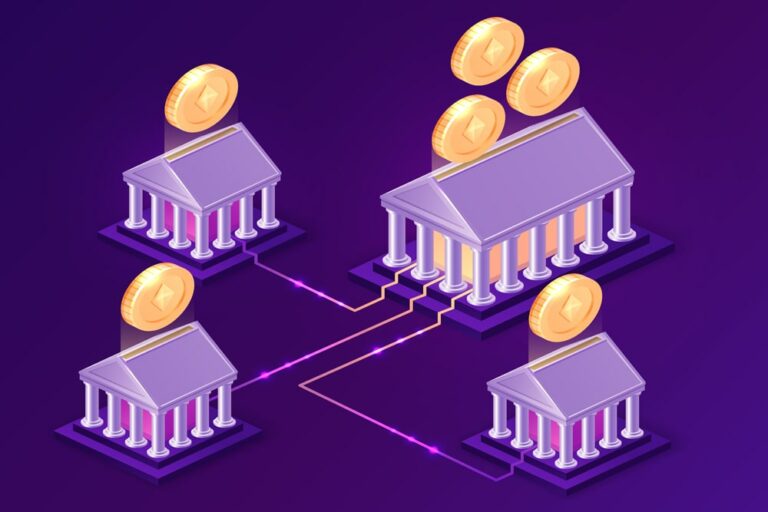In the ever-evolving landscape of finance and technology, the fusion of these two domains, known as fintech, has emerged as a transformative force. Fintech’s rapid rise in recent years has not only disrupted traditional financial services but has also set the stage for what promises to be an exciting and dynamic next decade. As we stand on the threshold of a new era in finance, it becomes imperative to anticipate the trends that will shape the financial landscape for the foreseeable future.
The world of finance, once defined by brick-and-mortar institutions, is now defined by innovation and digitalization. From the way we make payments and invest our money to how we access loans and manage our personal finances, fintech is fundamentally altering the way financial services are delivered and consumed. To navigate this complex and ever-changing landscape successfully, we must peer into the crystal ball of fintech and predict the trends that will dominate the next decade.
In this insightful exploration, we embark on a journey through the fascinating realm of fintech, where we will decipher the signals, analyze the data, and anticipate the innovations that will shape our financial future. Join us as we uncover the emerging trends that will redefine the way we transact, invest, and manage our financial lives in the next decade of fintech evolution.
Continued Growth of Digital Payments
One of the most remarkable fintech trends that’s set to gain even more momentum in the next decade is the continued growth of digital payments. The era of physical cash is gradually fading into history as more individuals and businesses embrace the convenience and security offered by digital payment solutions. While digital wallets and mobile payment apps have already gained widespread popularity, their adoption is poised to surge even further.
1. Mobile Payments Revolution:
Mobile payment apps have redefined the way we handle transactions, from the everyday coffee run to major purchases. In the coming decade, we can expect these apps to become even more integrated into our daily lives. Features like biometric authentication, advanced security protocols, and seamless user experiences will make mobile payments faster and more secure.
2. Contactless and NFC:
Contactless payments, driven by near-field communication (NFC) technology, have experienced rapid growth. Expect to see more devices and cards equipped with NFC capabilities. The COVID-19 pandemic has also accelerated the adoption of contactless payments due to their hygienic advantages, and this trend will persist.
3. Digital Currencies and CBDCs:
The rise of cryptocurrencies, like Bitcoin and Ethereum, has captured the world’s attention. Central banks are exploring the development of Central Bank Digital Currencies (CBDCs) to offer digital alternatives to traditional fiat currencies. These CBDCs could potentially redefine the global financial system by offering secure and efficient digital payment solutions backed by governments.
4. Cross-Border Payments:
Traditional cross-border transactions have been notoriously slow and costly. Fintech solutions, powered by blockchain and cryptocurrencies, are streamlining international payments. As regulatory frameworks evolve to accommodate these innovations, cross-border payments will become faster, cheaper, and more accessible to businesses and individuals alike.
5. Integration with E-commerce:
The synergy between digital payments and e-commerce will continue to grow. Online shopping experiences will become more seamless, with integrated payment gateways and one-click checkout options. Personalized payment recommendations and loyalty programs will enhance user experiences and drive customer satisfaction.
The continued growth of digital payments will not only make financial transactions more convenient but will also lead to a broader financial inclusion, where more people around the world can access and participate in the global economy. This trend is a testament to the transformative power of fintech in shaping the way we conduct financial transactions in the next decade.
Expansion of Cryptocurrency and Blockchain
Cryptocurrency and blockchain technology are poised to have a profound impact on the financial landscape in the coming decade. These technologies, once considered niche, are rapidly gaining mainstream acceptance and are set to revolutionize various aspects of finance.
1. Mainstream Adoption of Cryptocurrencies:
Cryptocurrencies like Bitcoin, Ethereum, and others are no longer limited to a niche audience of tech enthusiasts and investors. They are increasingly seen as alternative assets and a store of value. Major financial institutions, including investment firms and banks, are recognizing the potential of cryptocurrencies as an asset class. This trend is expected to continue, with more institutional investors and corporations diversifying their portfolios with cryptocurrencies.
2. Decentralized Finance (DeFi):
DeFi platforms, built on blockchain technology, are reimagining traditional financial services. These platforms offer lending, borrowing, trading, and yield farming services without intermediaries like banks. DeFi has unlocked financial opportunities for people worldwide, allowing them to participate in a global, permissionless financial system. The DeFi ecosystem is expected to expand further, introducing innovative financial products and services.
3. Central Bank Digital Currencies (CBDCs):
Central banks are actively exploring the creation of digital versions of their national currencies, known as Central Bank Digital Currencies (CBDCs). These digital currencies, backed by governments, aim to provide secure, efficient, and programmable forms of money. CBDCs could revolutionize the way people make payments, conduct financial transactions, and interact with their central banks.
4. Smart Contracts and Tokenization:
Blockchain’s ability to create smart contracts—self-executing agreements with predefined rules—has applications beyond cryptocurrencies. Smart contracts are being used in areas such as legal agreements, supply chain management, and real estate transactions. Additionally, blockchain enables the tokenization of assets, allowing for the fractional ownership of real estate, art, and other traditionally illiquid assets.
5. Regulatory Clarity:
Regulatory frameworks for cryptocurrencies and blockchain technology are evolving. Governments and international bodies are working to establish clear guidelines for these technologies. Regulatory clarity is expected to reduce uncertainty and encourage responsible innovation in the crypto and blockchain space.
The expansion of cryptocurrency and blockchain technology signifies a shift toward a more inclusive, efficient, and transparent financial system. As these technologies continue to mature, they will likely play a central role in reshaping how we transfer value, access financial services, and conduct business in the next decade.
Fintech in Lending and Personal Finance
The fintech revolution has significantly transformed the lending and personal finance landscape. Over the next decade, we can anticipate even more innovative changes that empower consumers and streamline financial processes.
1. Digital Lending Platforms: Digital lending platforms have democratized access to credit. By leveraging big data, artificial intelligence, and machine learning, these platforms assess creditworthiness more accurately and provide loans to individuals and businesses that traditional banks might have deemed too risky. In the coming years, we can expect an increase in the use of alternative data sources, such as social media activity and rent payments, to further refine credit assessments.
2. Peer-to-Peer (P2P) Lending:
P2P lending platforms connect borrowers directly with individual investors. These platforms have grown in popularity due to their competitive interest rates and streamlined application processes. In the next decade, we might witness the emergence of more specialized P2P lending platforms catering to specific niches, such as small business loans or green financing.
3. Personal Financial Management Apps:
Fintech has made personal finance management more accessible and intuitive. Mobile apps and digital tools offer users insights into their spending habits, help them set financial goals, and even invest spare change. In the future, personal financial management apps are likely to become even more sophisticated, providing tailored advice and nudges to improve users’ financial well-being.
4. Robo-Advisors:
Robo-advisors have gained prominence in wealth management by offering automated, algorithm-driven portfolio management services. They provide cost-effective and diversified investment options, making wealth management accessible to a broader audience. In the next decade, we can expect increased integration of robo-advisors with other financial services, such as banking and insurance, to provide users with holistic financial solutions.
5. Embedded Finance:
Embedded finance refers to financial services seamlessly integrated into non-financial platforms. For instance, e-commerce platforms might offer customers “buy now, pay later” options at checkout. This trend is expected to grow, with fintech becoming an integral part of various industries, from e-commerce and ride-sharing to healthcare and real estate.
6. Open Banking:
Open banking initiatives enable customers to share their financial data securely with third-party providers. This fosters competition and innovation in financial services. In the coming years, open banking is likely to expand, with more institutions adopting standardized APIs (Application Programming Interfaces) and enabling customers to access a broader range of financial products and services from different providers.
The next decade promises further disruption and innovation in lending and personal finance, ultimately benefiting consumers through greater access to financial products, improved financial literacy, and more personalized financial solutions. Fintech will continue to play a pivotal role in shaping the future of these sectors.
Regulatory Changes and Compliance
As fintech continues its rapid evolution, regulatory changes and compliance will play an increasingly critical role in shaping the industry’s trajectory over the next decade. Fintech firms will need to navigate a complex landscape of regulations while maintaining innovation and consumer trust.
1. Regulatory Sandbox Programs: Regulatory sandbox programs, which allow fintech startups to test new products and services with reduced regulatory constraints, have gained popularity worldwide. These programs foster innovation by providing a controlled environment for experimentation. In the coming years, more countries are likely to establish such programs to encourage fintech innovation while ensuring consumer protection.
2. Data Privacy and Security:
With the growing emphasis on data privacy and security, fintech companies will need to adapt to evolving regulations, such as the General Data Protection Regulation (GDPR) in Europe. Consumers are increasingly concerned about how their financial data is handled, and compliance with these regulations will be crucial to maintaining trust.
3. Anti-Money Laundering (AML) and Know Your Customer (KYC) Regulations:
AML and KYC regulations are paramount in preventing financial crimes and ensuring the legitimacy of financial transactions. Fintech firms must continue to invest in robust AML and KYC processes to comply with global standards. In the future, regulatory technology (RegTech) solutions powered by artificial intelligence may help streamline compliance efforts.
4. Cross-Border Regulations:
Fintech operates on a global scale, and as such, cross-border regulations will become more complex. Harmonizing regulations across jurisdictions will be a challenge. However, international collaboration will be essential to enable fintech firms to expand their services globally while adhering to local compliance requirements.
5. Central Bank Digital Currencies (CBDCs):
Central banks are exploring the issuance of digital currencies. These CBDCs will introduce a new layer of regulation and require fintech firms to adapt their services to support digital currencies issued by central authorities. CBDCs also raise questions about the future of cryptocurrencies and stablecoins.
6. Consumer Protection:
Regulatory bodies will continue to focus on consumer protection in the fintech space. Regulations may evolve to ensure that consumers have access to clear and transparent information about fintech products and that they are protected from predatory practices.
7. Regulators Embracing Technology:
Regulators themselves are embracing technology to enhance their oversight capabilities. Regulatory technology (RegTech) is likely to become more prevalent, enabling regulators to monitor financial transactions in real-time and respond to emerging risks proactively.
8. Regulatory Adaptability:
Regulatory bodies will need to remain adaptable to keep pace with fintech innovation. This means engaging in ongoing dialogue with industry stakeholders, understanding emerging technologies, and revising regulations as needed to strike a balance between innovation and security.
In summary, regulatory changes and compliance will be central to the fintech landscape in the next decade. Fintech companies that proactively address these regulatory challenges will not only ensure their own longevity but also contribute to the overall stability and trustworthiness of the industry.
The Future of Fintech Innovation
As we look ahead to the next decade, the fintech industry is poised for a remarkable era of innovation. Several key trends and developments are likely to shape the future of fintech and redefine how financial services are delivered, accessed, and experienced.
1. Artificial Intelligence and Machine Learning:
AI and machine learning will continue to revolutionize fintech by enhancing data analysis, automating tasks, and improving decision-making processes. Chatbots and virtual financial advisors powered by AI will become more sophisticated, offering personalized financial advice and support.
2. Quantum Computing:
Quantum computing holds the potential to revolutionize the financial industry by solving complex problems and optimizing portfolios at speeds that were previously unimaginable. While still in its infancy, quantum computing will gradually find applications in risk analysis, fraud detection, and portfolio management.
3. Decentralized Finance (DeFi):
DeFi represents a fundamental shift in how financial services are built and accessed. It offers decentralized lending, borrowing, and trading of digital assets, eliminating intermediaries. DeFi platforms will continue to expand, potentially disrupting traditional financial institutions.
4. Open Banking:
Open banking initiatives, driven by regulations like the Revised Payment Services Directive (PSD2) in Europe, are unlocking financial data and encouraging collaboration between fintechs and traditional banks. This trend will lead to a proliferation of innovative financial products and services.
5. Digital Currencies:
Central bank digital currencies (CBDCs) and cryptocurrencies like Bitcoin will continue to gain acceptance and use. Fintech firms will play a pivotal role in developing infrastructure and services for the growing digital currency ecosystem.
6. Embedded Finance:
Fintech will increasingly become embedded in everyday life, blurring the lines between financial services and other industries. E-commerce platforms, social media networks, and even ride-sharing apps may offer financial products and services seamlessly.
7. Financial Inclusion:
Fintech will continue to drive financial inclusion by expanding access to banking services for underserved populations, especially in emerging markets. Mobile wallets, digital identity solutions, and microfinance platforms will play a crucial role in this effort.
8. Sustainable Finance:
Fintech will contribute to the growth of sustainable and socially responsible investing. Platforms will offer tools to assess the environmental and social impact of investments, aligning with the growing demand for ethical and green finance.
9. Cybersecurity and Fraud Prevention:
As fintech innovations grow, so will the importance of robust cybersecurity measures and fraud prevention technologies. Fintech companies will invest heavily in ensuring the security and integrity of digital financial transactions.
10. Regulatory Evolution:
Regulatory bodies will adapt to fintech innovations, striking a balance between promoting innovation and safeguarding consumers and financial stability. Regulatory sandboxes and agile regulatory approaches will become more common.
In conclusion, the fintech industry is on the cusp of an exciting decade of transformation and innovation. These trends are not mutually exclusive and will likely intersect, creating novel opportunities and challenges. Fintech companies that embrace these trends and proactively address challenges will be at the forefront of shaping the financial services landscape in the years to come.
Conclusion
The future of fintech promises to be an era of unprecedented innovation and disruption. As we embark on the next decade, the financial technology landscape is poised to undergo significant transformations, reshaping the way we interact with money, investments, and financial services.
The continued growth of digital payments, driven by the convenience and security they offer, will make cash transactions increasingly rare. As mobile wallets, contactless payments, and digital currencies gain momentum, consumers and businesses alike will enjoy faster, more efficient, and more transparent payment options.
The expansion of cryptocurrency and blockchain technology will challenge traditional financial systems and redefine how we view assets and transactions. Whether it’s central bank digital currencies (CBDCs) or decentralized finance (DeFi) platforms, blockchain will play a central role in reshaping financial infrastructure.
Fintech’s impact will extend to lending and personal finance, making access to credit more inclusive and affordable. With AI-driven underwriting, robo-advisors, and peer-to-peer lending platforms, consumers will have a broader range of financial products and services at their fingertips.
While innovation surges, regulatory changes and compliance will remain a critical consideration. Governments and regulatory bodies will adapt to fintech advancements, aiming to strike a balance between fostering innovation and safeguarding financial stability and consumer protection.
The future of fintech innovation also includes quantum computing, embedded finance, sustainable finance, and enhanced cybersecurity measures. These trends will not only reshape the industry but also bring financial services closer to people’s everyday lives, making them more accessible, efficient, and personalized.
In this dynamic landscape, fintech firms, traditional financial institutions, and regulators must collaborate, adapt, and embrace change. The next decade will be defined by those who harness the potential of fintech to create innovative solutions that empower individuals and businesses while addressing the evolving needs of an increasingly digital world. The journey ahead promises to be transformative, exciting, and full of opportunities for those ready to seize them.




